Nut Consumption
How to submit an article:
- Registered users can submit any published journal article that has a unique DOI (Digital Object Identifier) name or link to Research Hub.
- For example, you can paste the full DOI link:
https://doi.org/10.1109/5.771073or just the DOI name:10.1109/5.771073into the field above and click submit. - The person who is first to submit a valid article to Research Hub will forever be credited for it, and every article submission earns you +6 Research Points.
Related Topics
Published research studies are articles that present the findings of original research that has undergone a peer-review process and has been made publicly available in scholarly journals, books or other media.

Walnut Consumption Improves Sleep Quality: A Randomized-Controlled Trial
2024 Feb 28 The 14th European Nutrition Conference FENS 2023 Izquierdo-Pulido M, Zerón-Rugerio MF, Ibarra-Picón A, Diez-Hernández M, Pérez-Cano F, Cambras T
Randomised Controlled Trial Sleep WalnutDaily consumption of walnuts improves sleep quality and reduces daytime sleepiness in healthy young adults.
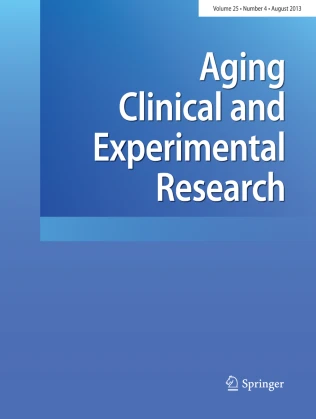
Concurrent training associated with moderate walnut consumption improved isokinetic strength, subjective sleep quality, cognitive performance and postural balance in elderly active men: a randomized controlled trial
2024 Feb 29 Aging Clinical and Experimental Research Kamoun A, Yahia A, Farjallah MA, Maaloul R, Marzougui H, Bouaziz M, et al.
Randomised Controlled Trial Postural Balance Cognitive Function Sleep WalnutWalnut consumption while doing concurrent training improves strength, sleep quality, standing support, cognitive performance and postural balance in elderly men.
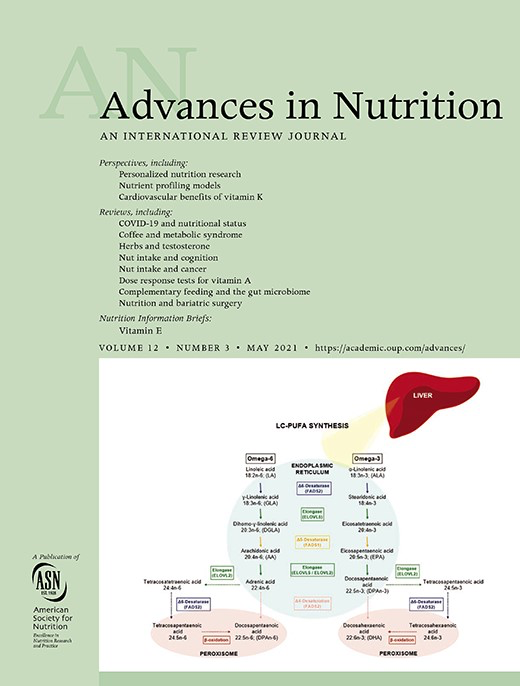
Nut Consumption and Fertility: a Systematic Review and Meta-Analysis
2024 Jan Advances in Nutrition Cardoso BR, Fratezzi I, Kellow NJ
Systematic Review Meta-Analysis Sperm Quality Nut Consumption Female Fertility Male Fertility Nuts NutRegular consumption of nuts improves sperm parameters such as motility, vitality, and morphology, potentially promoting successful reproductive outcomes in healthy males.
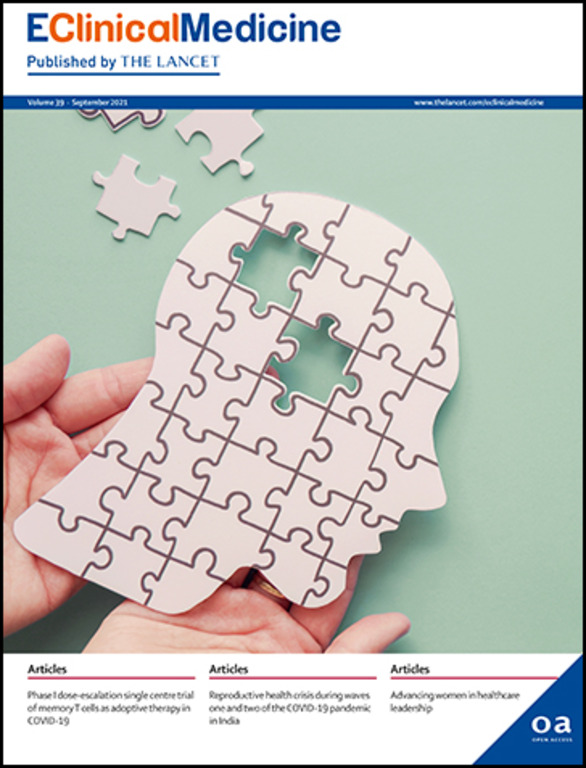
Effect of walnut consumption on neuropsychological development in healthy adolescents: a multi-school randomised controlled trial
2023 May EClinicalMedicine Pinar-Martí A, Gignac F, Fernández-Barrés S, Romaguera D, Sala-Vila A, Lázaro I, et al.
Randomised Controlled Trial Adolescents ADHD WalnutWalnut consumption may improve attention, fluid intelligence, and reduce ADHD symptoms in adolescents who consistently incorporated them into their diet.
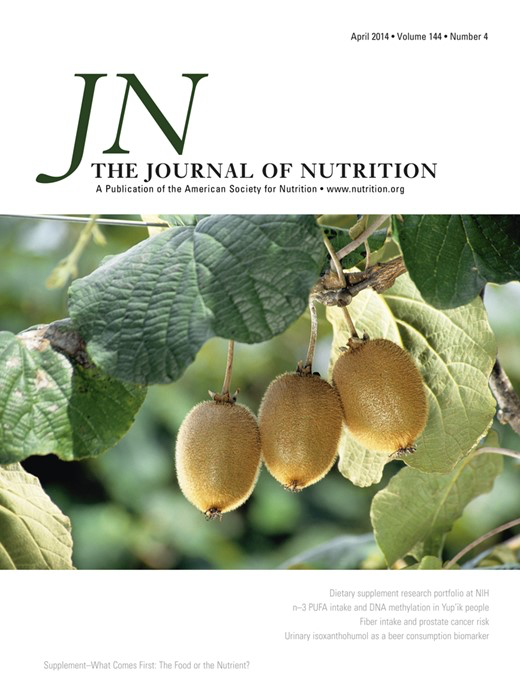
Long-Term Consumption of Nuts (Including Peanuts, Peanut Butter, Walnuts, and Other Nuts) in Relation to Risk of Frailty in Older Women: Evidence from a Cohort Study
2023 Mar The Journal of Nutrition Wang R, Hannan MT, Wang M, Schwartz AW, Lopez-Garcia E, Grodstein F
Cohort Study Peanut FrailtyRegular nut consumption, particularly peanuts and walnuts, is associated with a lower incidence of frailty in aging female populations.
Research insights are moderated by the Research Hub team and offer an at-a-glance overview of interesting research findings.

2024 Aging Clinical and Experimental Research
Walnut consumption while doing concurrent training improves strength, sleep quality, standing support, cognitive performance and postural balance in elderly men.
Randomised Controlled Trial Cognitive Function Postural Balance Sleep Walnut
Concurrent training associated with moderate walnut consumption improved isokinetic strength, subjective sleep quality, cognitive performance and postural balance in elderly active men: a randomized controlled trial
Kamoun A, Yahia A, Farjallah MA, Maaloul R, Marzougui H, Bouaziz M, et al.

2024 The 14th European Nutrition Conference FENS 2023
Daily consumption of walnuts improves sleep quality and reduces daytime sleepiness in healthy young adults.
Randomised Controlled Trial Sleep Walnut
Walnut Consumption Improves Sleep Quality: A Randomized-Controlled Trial
Izquierdo-Pulido M, Zerón-Rugerio MF, Ibarra-Picón A, Diez-Hernández M, Pérez-Cano F, Cambras T

2024 Advances in Nutrition
Regular consumption of nuts improves sperm parameters such as motility, vitality, and morphology, potentially promoting successful reproductive outcomes in healthy males.
Systematic Review Female Fertility Male Fertility Nut Nuts Sperm Quality
Nut Consumption and Fertility: a Systematic Review and Meta-Analysis
Cardoso BR, Fratezzi I, Kellow NJ

2023 EClinicalMedicine
Walnut consumption may improve attention, fluid intelligence, and reduce ADHD symptoms in adolescents who consistently incorporated them into their diet.
Randomised Controlled Trial ADHD Adolescents Walnut
Effect of walnut consumption on neuropsychological development in healthy adolescents: a multi-school randomised controlled trial
Pinar-Martí A, Gignac F, Fernández-Barrés S, Romaguera D, Sala-Vila A, Lázaro I, et al.

2023 The Journal of Nutrition
Regular nut consumption, particularly peanuts and walnuts, is associated with a lower incidence of frailty in aging female populations.
Cohort Study Frailty Peanut
Long-Term Consumption of Nuts (Including Peanuts, Peanut Butter, Walnuts, and Other Nuts) in Relation to Risk of Frailty in Older Women: Evidence from a Cohort Study
Wang R, Hannan MT, Wang M, Schwartz AW, Lopez-Garcia E, Grodstein F
Review Articles
Review articles summarise and critically evaluate the current state of research on a specific topic or field by synthesising multiple primary research studies.

Nut Consumption and Fertility: a Systematic Review and Meta-Analysis
2024 Jan Advances in Nutrition Cardoso BR, Fratezzi I, Kellow NJ
Systematic Review Meta-Analysis Sperm Quality Nut Consumption Female Fertility Male Fertility Nuts NutRegular consumption of nuts improves sperm parameters such as motility, vitality, and morphology, potentially promoting successful reproductive outcomes in healthy males.
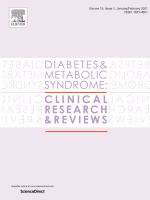
Effects of cashew nut consumption on body composition and glycemic indices: A meta-analysis and systematic review of randomized controlled trials
2021 Mar Diabetes & Metabolic Syndrome: Clinical Research & Reviews Jamshidi S, Moradi Y, Nameni G, Mohsenpour MA, Vafa M
The study concluded that incorporating cashew into the diet has no significant effect on body composition or modifying glycemic indices.
Systematic Review Meta-Analysis Cashew Insulin Resistance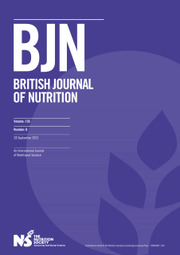
Effect of walnut consumption on markers of blood glucose control: a systematic review and meta-analysis
2020 Dec British Journal of Nutrition Neale, E., Guan, V., Tapsell, L., et al.
Systematic Review Meta-Analysis Walnut Type 2 DiabetesConsuming walnuts does not significantly alter blood glucose levels, indicating cardiovascular protective effects of walnuts are not due to improved glycaemic control.

Nut Consumption for Cognitive Performance: A Systematic Review
2020 Dec 16 Advances in Nutrition Lauren E Theodore, Nicole J Kellow, Emily A McNeil, Evangeline O Close, Eliza G Coad, Barbara R Cardoso, et al.
Systematic Review Walnut Memory Cognitive FunctionRegular walnut consumption is consistently linked to improved cognitive performance in adults, particularly those at higher risk of cognitive decline.

The effects of cashew nut intake on lipid profile and blood pressure: A systematic review and meta-analysis of randomized controlled trials
2020 May Complementary Therapies in Medicine Jalali M, Karamizadeh M, Ferns GA, Zare M, Moosavian SP, Akbarzadeh M
Cashew nut consumption has no significant effects on lipid profile and diastolic blood pressure, but it may reduce systolic blood pressure.
Systematic Review Meta-Analysis Cashew Systolic Blood PressureClinical Trials
Clinical trials are research studies that involve people and are conducted to evaluate the safety and efficacy of new treatments or interventions, such as drugs, medical devices, or behavioural therapies.

Walnut Consumption Improves Sleep Quality: A Randomized-Controlled Trial
2024 Feb 28 The 14th European Nutrition Conference FENS 2023 Izquierdo-Pulido M, Zerón-Rugerio MF, Ibarra-Picón A, Diez-Hernández M, Pérez-Cano F, Cambras T
Randomised Controlled Trial Sleep WalnutDaily consumption of walnuts improves sleep quality and reduces daytime sleepiness in healthy young adults.

Concurrent training associated with moderate walnut consumption improved isokinetic strength, subjective sleep quality, cognitive performance and postural balance in elderly active men: a randomized controlled trial
2024 Feb 29 Aging Clinical and Experimental Research Kamoun A, Yahia A, Farjallah MA, Maaloul R, Marzougui H, Bouaziz M, et al.
Randomised Controlled Trial Postural Balance Cognitive Function Sleep WalnutWalnut consumption while doing concurrent training improves strength, sleep quality, standing support, cognitive performance and postural balance in elderly men.

Effect of walnut consumption on neuropsychological development in healthy adolescents: a multi-school randomised controlled trial
2023 May EClinicalMedicine Pinar-Martí A, Gignac F, Fernández-Barrés S, Romaguera D, Sala-Vila A, Lázaro I, et al.
Randomised Controlled Trial Adolescents ADHD WalnutWalnut consumption may improve attention, fluid intelligence, and reduce ADHD symptoms in adolescents who consistently incorporated them into their diet.
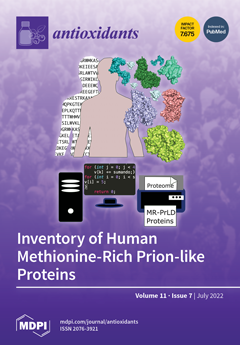
Urinary Phenolic Metabolites Associated with Peanut Consumption May Have a Beneficial Impact on Vascular Health Biomarkers
2023 Mar 11 Antioxidants Parilli-Moser I, Domínguez-López I, Vallverdú-Queralt A, Hurtado-Barroso S, Lamuela-Raventós R
Consumers of SRP and PB exhibited significantly higher excretion of specific UPMs, including enterodiol glucuronide, 3-hydroxybenzoic acid, vanillic acid sulfate, p-coumaric acid, coumaric acid glucuronide I and II, and isoferulic acid, compared to the control group. The peanut interventions also led to an improvement in prostacyclin I2 (PGI2) levels and the thromboxane A2 (TXA2):PGI2 ratio. Higher post-intervention levels of UPMs were correlated with positive changes in vascular biomarkers, indicating a potential positive impact of peanut product consumption on vascular health.
Clinical Study Randomised Controlled Trial Peanut Cardiovascular Disease
The Effects of Walnuts and Academic Stress on Mental Health, General Well-Being and the Gut Microbiota in a Sample of University Students: A Randomised Clinical Trial
2022 Nov 11 Nutrients Herselman MF, Bailey S, Deo P, Zhou XF, Gunn KM, Bobrovskaya L
Randomised Controlled Trial Students Stress Gut Microbiota WalnutWalnut consumption improves mental health indicators and negates some negative effects of academic stress on students' health and gut microbiota, especially in females.
Study Protocols
Published study protocols are detailed plans that outline the objectives, methodology, statistical analyses, and organisation of a research study that have been made publicly available for others to review and use as a reference.
Presentation Slides

Randomised Controlled Trial
Walnut consumption while doing concurrent training improves strength, sleep quality, standing support, cognitive performance and postural balance in elderly men.
Kamoun A, Yahia A, Farjallah MA, Maaloul R, Marzougui H, Bouaziz M, Souissi N, Elleuch MH, Hammouda O

Randomised Controlled Trial
Daily consumption of walnuts improves sleep quality and reduces daytime sleepiness in healthy young adults.
Izquierdo-Pulido M, Zerón-Rugerio MF, Ibarra-Picón A, Diez-Hernández M, Pérez-Cano F, Cambras T

Systematic Review
Regular consumption of nuts improves sperm parameters such as motility, vitality, and morphology, potentially promoting successful reproductive outcomes in healthy males.
Cardoso BR, Fratezzi I, Kellow NJ

Randomised Controlled Trial
Walnut consumption may improve attention, fluid intelligence, and reduce ADHD symptoms in adolescents who consistently incorporated them into their diet.
Pinar-Martí A, Gignac F, Fernández-Barrés S, Romaguera D, Sala-Vila A, Lázaro I, Ranzani OT, Persavento C, Delgado A, Carol A, Torrent J, Gonzalez J, Roso E, Barrera-Gómez J, López-Vicente M, Boucher O, Nieuwenhuijsen M, Turner MC, Burgaleta M, Cana

Cohort Study
Regular nut consumption, particularly peanuts and walnuts, is associated with a lower incidence of frailty in aging female populations.
Wang R, Hannan MT, Wang M, Schwartz AW, Lopez-Garcia E, Grodstein F

Randomised Controlled Trial
Walnut consumption improves mental health indicators and negates some negative effects of academic stress on students' health and gut microbiota, especially in females.
Herselman MF, Bailey S, Deo P, Zhou XF, Gunn KM, Bobrovskaya L

Meta-Analysis
Regular peanut consumption appears to positively influence lipid metabolism, reducing levels of triglycerides in the blood.
Parilli-Moser I, Hurtado-Barroso S, Guasch-Ferré M, Lamuela-Raventós RM
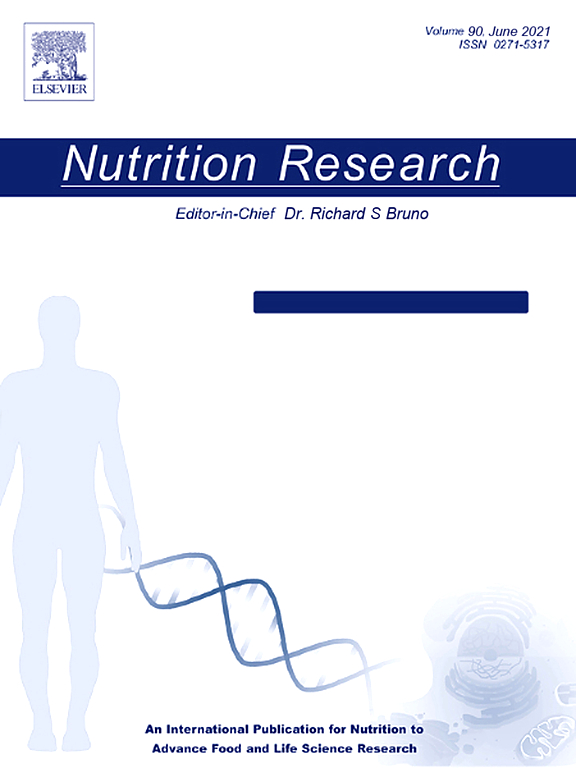
Cohort Study
Tree nut consumption is inversely associated with the prevalence of hyperestrogenism and circulating estradiol levels in men.
Wang Y, Fang Y

Cohort Study
The consumption of tree nuts is associated with increased levels of sex hormone-binding globulin in premenopausal women.
Wang Y
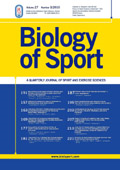
Randomised Controlled Trial
Walnut consumption coupled with concurrent training improves lipid profile, steroid hormone levels, and systematic inflammation in elderly men.
Kamoun A, Hammouda O, Turki M, Maaloul R, Chtourou M, Bouaziz M, Driss T, Souissi N, Chamari K, Ayadi F

Systematic Review
Regular walnut consumption is consistently linked to improved cognitive performance in adults, particularly those at higher risk of cognitive decline.
Lauren E Theodore, Nicole J Kellow, Emily A McNeil, Evangeline O Close, Eliza G Coad, Barbara R Cardoso,

Systematic Review
Consuming walnuts does not significantly alter blood glucose levels, indicating cardiovascular protective effects of walnuts are not due to improved glycaemic control.
Neale, E., Guan, V., Tapsell, L., & Probst, Y.
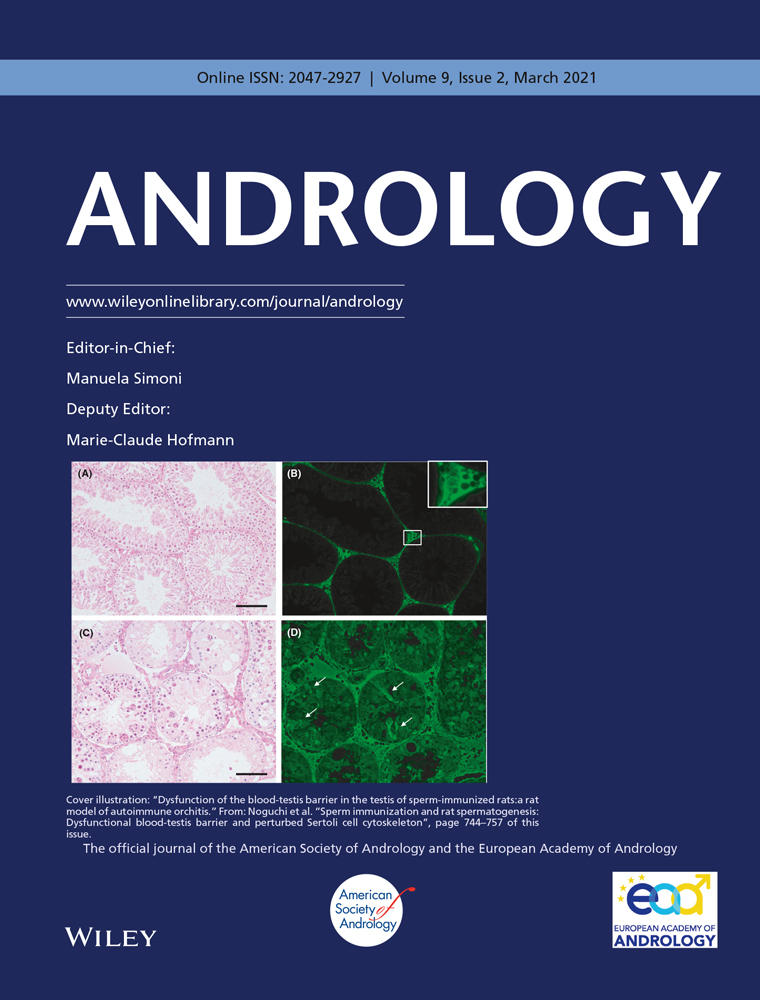
Randomised Controlled Trial
Incorporating tree nuts into a Western-style diet subtly modifies specific DNA methylation regions within sperm, thereby showing parts of the sperm epigenome can respond to dietary changes.
Salas‐Huetos A, James ER, Salas‐Salvadó J, Bulló M, Aston KI, Carrell DT, Jenkins TG
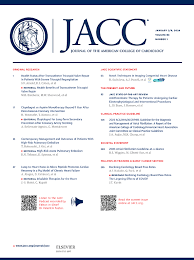
Randomised Controlled Trial
Incorporating daily doses of walnuts into the diet of elderly individuals significantly reduces the concentrations of several inflammatory biomarkers.
Cofán M, Rajaram S, Sala-Vila A, Valls-Pedret C, Serra-Mir M, Roth I, Freitas-Simoes TM, Bitok E, Sabaté J, Ros E

Randomised Controlled Trial
Consuming walnuts daily can reduce cardiovascular risk factors in chronic kidney disease patients without altering significant physiological levels.
Sanchis P, Molina M, Berga F, Muñoz E, Fortuny R, Costa-Bauzá A, Grases F, Buades JM

Randomised Controlled Trial
Adding nuts to a regular diet can significantly improve self-reported orgasmic function and sexual desire in healthy males.
Salas-Huetos A, Muralidharan J, Galiè S, Salas-Salvadó J, Bulló M
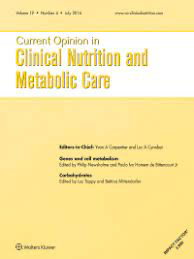
Systematic Review
Most bioactive walnut micronutrients synergize to affect multiple metabolic pathways leading to protection from chronic noncommunicable diseases.
Ros, Emilioa,b; Izquierdo-Pulido, Maríab,c; Sala-Vila, Aleix
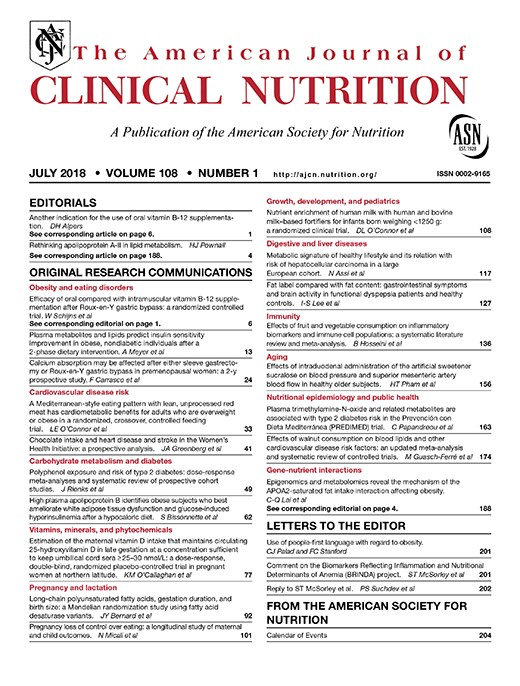
Systematic Review
Incorporating walnuts into the diet improved blood lipid profile without adversely affecting body weight or blood pressure.
Marta Guasch-Ferré, Jun Li, Frank B Hu, Jordi Salas-Salvadó, Deirdre K Tobias

Randomised Controlled Trial
Walnuts appear to enhance mood in non-depressed healthy young males.
Pribis P
Executive Summary
Write an executive summary in the form of a blog article on the topic of "Research into Chinese medicine treatment for Nut Consumption" summarising the research below and using language that can be easily understood by patients and avoiding medical jargon using a professional and caring tone of voice.
Write an executive summary in the form of a blog article on the topic of "Researched Chinese medicine treatments for Nut Consumption" summarising the research below in an objective and easy to understand way, and using language that can be easily understood by patients. Group the article into Chinese medicine treatments first, followed by nutrition and other treatments. Avoid using medical jargon and use a professional and caring tone of voice.
Write me a concise but easy to understand executive summary on the topic of "Chinese medicine treatments for Nut Consumption" based on the following research that I will give you. Your summary should be 2 paragraphs long in Australian English spelling and include references to the studies.
A Randomised Controlled Trial published in 2024 in the journal Aging Clinical and Experimental Research found that Walnut consumption while doing concurrent training improves strength, sleep quality, standing support, cognitive performance and postural balance in elderly men. In the study, twenty healthy elderly men were grouped into two randomly controlled cohorts. There were three training sessions per week featuring a concurrent combination of strength and endurance training. One group received a diet supplemented with 15 grams per day of walnuts (CTW) over six weeks while the other didn't (CT). Their strength, sleep quality, cognitive performance and postural balance were evaluated using an isokinetic strength test, Spiegel questionnaire, Montreal cognitive assessment and balance measurements respectively, 48 hours before and after the intervention period. The results pointed that both groups experienced significant improvements in strength and sleep quality with CTW showing a greater increase in sleep quality. CTW group showed improvements in cognitive performance and postural balance while CT group did not see these benefits. Hence it's observed that combination of concurrent training and walnut consumption was found to be effective in improving strength, sleep quality, cognitive performance and postural balance in elderly men.
A Randomised Controlled Trial published in 2024 in the journal The 14th European Nutrition Conference FENS 2023 found that Daily consumption of walnuts improves sleep quality and reduces daytime sleepiness in healthy young adults. In the above-mentioned experimental trial, 80 young adults were randomly selected to either consume 40 grams of walnuts daily or abstain from eating walnuts and any other nuts for 8 weeks, followed by a two-week break. Actigraphy was used to measure sleep quality, from various dimensions such as duration, latency, awakenings, and sleep efficiency, while daytime sleepiness was measured using the Epworth Sleepiness Scale. Furthermore, the concentration of 6-sulfatoxymelatonin, a melatonin metabolite, was assessed in urine samples collected at two intervals throughout the day and night. This research observed a notable improvement in the subjects' sleep quality after an 8-week period of walnut consumption. The participants experienced shorter sleep latency, greater sleep efficiency, and reduced daytime sleepiness. Additionally, there was a heightened concentration of 6-sulfatoxymelatonin in urine samples collected between 20:00 to 23:00. These results suggest that a daily intake of 40 grams of walnuts may augment the secretion of melatonin, thereby improving sleep quality and reducing daytime sleepiness in healthy young adults.
A Systematic Review published in 2024 in the journal Advances in Nutrition found that Regular consumption of nuts improves sperm parameters such as motility, vitality, and morphology, potentially promoting successful reproductive outcomes in healthy males. The researchers in this study carried out a systematic review and meta-analysis, exploring the impact of nut intake on fertility outcomes. They sourced data from four databases: Ovid MEDLINE, Embase, CINAHL, and Scopus, from their inception until June 2023. The inclusion criteria for articles were humans of reproductive age who had consumed nuts for a minimum of three months, with any consequent fertility-related outcomes reported. The researchers undertook a random-effects meta-analysis to produce a collective estimate of the effect of nut consumption on four specific sperm characteristics: total motility, vitality, morphology, and concentration. In this review and meta-analysis, the researchers involved four studies, evaluating a total of 875 participants, composed of 646 males and 229 females. For males, two randomized control trials involving 223 individuals revealed that a daily consumption of at least 60g of nuts led to an improvement in sperm motility, vitality, and morphology, compared to those consuming fewer nuts, though it did not affect sperm concentration. Conversely, the non-randomized studies could not discern an association between nut consumption and traditional sperm parameters in males, nor could they establish a link between nut intake and embryo implantation, clinical pregnancy or live birth in males and females undergoing Assisted Reproductive Technology (ART).
A Randomised Controlled Trial published in 2023 in the journal EClinicalMedicine found that Walnut consumption may improve attention, fluid intelligence, and reduce ADHD symptoms in adolescents who consistently incorporated them into their diet. For their methods, the investigators utilized a 6-month randomised controlled nutrition intervention across multiple schools, enrolling 771 healthy teenagers. These participants, aged between 11-16 years, were split into two groups - one that was given a daily amount of 30 grams of raw walnut kernels to incorporate into their diet and a control group. Neuropsychological aspects like working memory, attention, fluid intelligence, and executive function were assessed, along with behavioral aspects such as socio-emotional and ADHD symptoms. Alpha-linolenic acid status was determined at the start and end of the trial as a measure of compliance. In regard to the results, general improvements in sustained attention, fluid intelligence, and a reduction in ADHD symptoms were recorded in participants who were more compliant in integrating walnuts into their diet. However, there was no significant improvement observed in the neuropsychological function of healthy adolescents overall.
A Cohort Study published in 2023 in the journal The Journal of Nutrition found that Regular nut consumption, particularly peanuts and walnuts, is associated with a lower incidence of frailty in aging female populations. The methodology of the study includes a population-based observational study of nonfrail women aged 60 and above from 11 states across the US, from the Nurses' Health Study. The outcome focused on incidence of frailty, defined through the FRAIL components such as fatigue, lower strength, reduced aerobic capacity, multiple chronic conditions, and significant weight loss. These were assessed every four years from 1992 to 2016. Food Frequency Questionnaires were used to examine the intake of peanuts, peanut butter, walnuts, and other nuts every four years from 1990 to 2014. Total nut consumption was calculated and categorized into varying serving sizes, and the relation of intake of each type of nut with frailty was examined separately using Cox proportional hazard models, adjusted for various factors such as age, smoking, BMI, diet quality, and medication use. In discussing the results, out of 71,704 participants, 14,195 frailty cases arose over a million person-years. Notably, regular consumption of nuts, particularly peanuts and walnuts, showed a significant inverse relation with frailty. That is, a higher intake of these types of nuts were associated with lower cases of frailty. However, the same didn't apply to peanut butter. This affirms the potential benefits of regular nut consumption in aging female population's health and well-being.
A Randomised Controlled Trial published in 2022 in the journal Nutrients found that Walnut consumption improves mental health indicators and negates some negative effects of academic stress on students' health and gut microbiota, especially in females. In the study, the researchers launched a randomized clinical trial to study the effects of academic stress and daily walnut consumption on undergraduate students' mental health, general health biomarkers, and the gut microbiota. The specific aim was to examine the implications of stress and diet interplay, focusing specifically on the consumption of walnuts due to their previously demonstrated positive impact on mental wellbeing. In analyzing the results, they found that academic stress negatively affected the self-reported mood and overall mental health of the students. However, a daily intake of walnuts appeared to improve the mental health indicators. Notably, it provided a buffer against the adverse effects of academic stress on metabolic and stress biomarkers. Particularly in female students, academic stress was linked to reduced gut microbial diversity, a negative effect which walnut consumption seemed to counteract. The effects on male participants could not be definitively ascertained due to the smaller participant size.
A Meta-Analysis published in 2022 in the journal Frontiers in Nutrition found that Regular peanut consumption appears to positively influence lipid metabolism, reducing levels of triglycerides in the blood. In the ARISTOTLE study, a randomized control trial was conducted with 63 participants who consumed either 25g/day of skin roasted peanuts, two tablespoons of peanut butter per day, or two tablespoons per day of a control butter based on peanut oil alongside their usual diet for a period of 6 months. This was done to understand the impact of regular peanut consumption on anthropometric, biochemical, and clinical measurements. Additionally, a meta-analysis was carried out incorporating data from several clinical trials, including the aforementioned ARISTOTLE study, to further consider the effects of consuming peanuts and peanut butter in both healthy individuals and those at a high cardiometabolic risk. The findings from the ARISTOTLE study indicated that lower total cholesterol/HDL-cholesterol and LDL-cholesterol/HDL-cholesterol ratios were observed in the group consuming skin roasted peanuts compared to the control butter group. Furthermore, the meta-analysis of clinical trials highlighted an association between peanut consumption and a decrease in triglycerides. It was seen that healthy consumers had lower total cholesterol and LDL-cholesterol/HDL-cholesterol ratios compared to control groups. However, it was also discovered that individuals at a high cardiometabolic risk experienced an increase in body weight following the peanut interventions, despite no change in body fat or body mass index. From the dose-response analyses, it was inferred that body weight slightly escalated with higher dosages of peanuts.
A Cohort Study published in 2022 in the journal Nutrition Research found that Tree nut consumption is inversely associated with the prevalence of hyperestrogenism and circulating estradiol levels in men. This cross-sectional study utilized data from the US National Health and Nutrition Examination Survey between 2013 and 2016, and involved 3340 men aged 20 years and above. The associations of tree nut consumption with circulating estradiol - a form of the female sex hormone estrogen - and the prevalence of hyperestrogenism - a condition characterized by excess estrogen - were analyzed using weighted linear regression and binary logistic regression, respectively. Tree nut consumption was observed in 207 of the participants, with the average usual intake amounting to 34.2g per day. The study noticed an inverse relationship between the typical intake of tree nuts and levels of bioavailable estradiol, even after taking into account all confounding factors. Regular consumption of 30g/day or more of tree nuts was associated with significantly lower risk of hyperestrogenism. Furthermore, higher consumption of tree nuts was linked with higher levels of circulating folate, which was in turn inversely related to circulating estradiol. Therefore, the study concluded that increased tree nut consumption could potentially lower the risk of hyperestrogenism in men by reducing circulating estradiol levels.
A Cohort Study published in 2021 in the journal Nutrition Research found that The consumption of tree nuts is associated with increased levels of sex hormone-binding globulin in premenopausal women. In a cohort study of 2699 adult women participants from the 2013 to 2016 US National Health and Nutrition Examination Survey, the association of tree nut consumption with sex hormone-binding globulin levels was assessed. Tree nut consumers were identified as those who ate tree nuts within the two 24-hours recall days. The associations between tree nut consumption and sex hormone-binding globulin were studied using least squares regression. Results showed that among the participants, 234 women consumed tree nuts and tree nut consumption was positively associated with the levels of sex hormone-binding globulin. On further analysis, it was found that this positive association was present in premenopausal women but not in postmenopausal women. Furthermore, tree nut consumption remained independently related to higher circulating levels of sex hormone-binding globulin in premenopausal women irrespective of the percentage of energy derived from tree nuts or daily tree nut intake amount.
A Randomised Controlled Trial published in 2021 in the journal Biology of Sport found that Walnut consumption coupled with concurrent training improves lipid profile, steroid hormone levels, and systematic inflammation in elderly men. The study created two matched groups of fit elderly men and placed one on a diet inclusive of walnuts (15g/day for six weeks) alongside their concurrent (resistance and endurance) training. The other group did the concurrent training without the walnut-supplemented diet. The study then took fasting blood samples from the participants 48 hours before and after the intervention for biochemical assessments. The group consuming walnuts saw a significant improvement in their lipid profiles with increased high-density lipoprotein levels and decreased total cholesterol, low-density lipoprotein and triglyceride levels. The walnut-eating participants also saw an increase in testosterone levels after the training, which was significantly higher than the group not consuming walnuts. Additionally, the walnut-consuming group experienced lowered cortisol levels and decreased C-reactive protein compared to the group not consuming walnuts. It is plausible the results could be attributed to the presence of polyunsaturated fatty acids in walnuts.
A Systematic Review published in 2020 in the journal Advances in Nutrition found that Regular walnut consumption is consistently linked to improved cognitive performance in adults, particularly those at higher risk of cognitive decline. The methodology of this review involved a systematic search of four different databases - Ovid MEDLINE, Scopus, CINAHL Plus, and Embase, from their inception through to April 2020. The search aimed to identify both interventional and observational studies that investigated the effect of nut intake on cognitive outcomes in adults aged 18 and above. The specific nuts studied included almonds, hazelnuts, macadamias, pistachios, walnuts, pecans, pine nuts, Brazil nuts, cashews, and peanuts. The review then selected the most relevant studies for further analysis; out of 2,374 identified articles, 22 met the criteria, with a combined participant count of 43,793. The resulting discussion of this review's findings highlighted that, despite inconsistencies due to varying study designs and types of nuts studied, regular mixed nut intake could potentially protect cognitive function in different age groups. However, more notable was the recurrent evidence found in studies focusing on groups at a higher risk of cognitive impairment, which repeatedly reported improved outcomes. Particularly, studies specifically targeting walnut consumption consistently found it positively associated with enhanced cognitive performance. The review found homogeneous results within these walnut-centred studies, with only one out of six, including two randomized controlled trials, not reporting a positive association.
A Systematic Review published in 2020 in the journal British Journal of Nutrition found that Consuming walnuts does not significantly alter blood glucose levels, indicating cardiovascular protective effects of walnuts are not due to improved glycaemic control. The study involved a systematic review and meta-analysis of previous randomized trials that investigated the effects of walnut consumption on glycaemic control markers such as fasting blood glucose, insulin, and glycated Hb. Studies were found through a comprehensive search of databases including Medline, PubMed, CINAHL, and Cochrane up to March 2nd, 2019. The included studies' risk of bias was assessed using the Cochrane Risk of Bias tool. In light of the results, although 16 studies were included in the review, it was found that walnut consumption did not significantly impact fasting blood glucose levels or other markers for glycaemic control. Recognizing that the studies included in the analysis were either deemed to have 'some concerns' or 'high risk' of bias, these results suggest that the beneficial effects of walnuts on cardiovascular health aren't caused by improvements in glycaemic control.
A Randomised Controlled Trial published in 2020 in the journal Andrology found that Incorporating tree nuts into a Western-style diet subtly modifies specific DNA methylation regions within sperm, thereby showing parts of the sperm epigenome can respond to dietary changes. The study methodology involved a post hoc analysis with a subset of the participants (healthy, non-smoking, and young) from the FERTINUTS 14-week randomized-controlled, parallel trial. The selected participants were from the pool of individuals who completed the entire dietary intervention trial. These individuals were split into two groups: the nut group, which consumed 60 grams per day of mixed nuts for 14 weeks, and the control group, who maintained their regular Western-style diet devoid of nuts. Investigation of the trial's results revealed no significant changes in overall methylation between the two groups. However, for the nut group, there were 36 genomic regions distinctly showing differential methylation between the beginning and end of the trial with a marked increase in methylation. No such changes were identified in the control group. Analysis also involved examining if nut consumption led to changes in the epigenetic age of cells, but no significant differences were discovered.
A Randomised Controlled Trial published in 2020 in the journal Journal of the American College of Cardiology found that Incorporating daily doses of walnuts into the diet of elderly individuals significantly reduces the concentrations of several inflammatory biomarkers. This study followed the WALHA study protocol and involved 708 elderly participants from two centers, one in Barcelona, Spain, and another in Loma Linda, California. They were randomly assigned into two groups: one group incorporated walnuts, at least 15% of energy (30 to 60g per day), into their diets, while the other group abstained from walnuts. The participants visited dietitians every two months for advice to maintain their allocated diets and physical activity level. The walnut group received 8-week allotments of raw-piece walnuts in sachets for daily consumption. The researchers conducted assessments of inflammatory biomarkers at the start and end of this 2-year study. Differences in the changes of inflammatory markers between diets were analyzed using multivariate-adjusted analysis of covariance. Of the 634 participants who completed the study, 66% were women and 32% were on statins. The average age was 69 years. There were no changes in body weight throughout the trial. Incorporation of walnuts into the diet resulted in significantly reduced concentrations of six out of ten examined biomarkers. Changes in inflammatory molecules were not related to changes in the main food groups.
A Randomised Controlled Trial published in 2019 in the journal Nutrients found that Consuming walnuts daily can reduce cardiovascular risk factors in chronic kidney disease patients without altering significant physiological levels. In this prospective, randomized, crossover, pilot clinical trial, 13 patients suffering from chronic kidney disease were selected as subjects. They were randomly divided into two groups, one of which was assigned a diet including 30 grams of walnuts each day while the other followed a control diet. After a duration of 30 days, a washout period of an additional 30 days was allowed, following which the groups were switched to the alternate diet. Key markers such as urinary and serum levels of phosphorous and potassium, multiple vascular risk factors, and urinary inositol phosphates were measured before initiating the trial and post the intervention period. The study indicated that a dietary supplement of walnuts resulted in reduced blood pressure, lower LDL cholesterol, and decreased albumin excretion. Interestingly, despite these changes, it had no impact on the physiological levels of phosphorous, potassium, parathyroid hormone, and fibroblast growth factor 23. This indicates that daily consumption of walnuts, when incorporated in a sodium, protein, phosphate, and potassium controlled diet, has the potential to be an effective strategy in reducing cardiovascular risk among chronic kidney disease patients without perturbing key physiological levels.
A Randomised Controlled Trial published in 2019 in the journal Nutrients found that Adding nuts to a regular diet can significantly improve self-reported orgasmic function and sexual desire in healthy males. In a 14-week randomized controlled trial, 83 healthy males aged 18-35 with erectile function assessment were divided into two groups. One group was given a regular Western-style diet enriched with 60g per day of a mixed nuts (43 participants), while the other group followed the same diet but avoided nuts (40 participants). At the beginning and end of the intervention, participants filled out a 15-question survey from the validated International Index of Erectile Function, and levels of nitric oxide and E-selectin were measured to assess changes in erectile function. Observing the impact of nut supplementation on sexual functionality showed that there was a significant increase in orgasmic function and sexual desire in the group that included nuts in their diet compared with the group that did not. Despite this, there were no appreciable differences in the peripheral concentrations of nitric oxide and E-selectin between the two groups.
A Systematic Review published in 2018 in the journal Current Opinion in Clinical Nutrition and Metabolic Care found that Most bioactive walnut micronutrients synergize to affect multiple metabolic pathways leading to protection from chronic noncommunicable diseases. Nuts in general and walnuts in particular are in the limelight for the association of their consumption with improved health outcomes. Walnuts have an optimal composition in bioactive nutrients and recent clinical and experimental studies have uncovered a number of beneficial effects of walnut micronutrients, working in isolation or in concert, on metabolic pathways and clinical outcomes that make this review timely and relevant. Alpha-linolenic acid, a critical walnut component, is metabolized into bioactive oxylipins, has been shown to protect microglial cells from inflammation, and is associated with lower fatal myocardial infarction rates through a putative antiarrhythmic effect. Phytosterols relate to the cholesterol-lowering effect of nut consumption. Nonsodium minerals are associated with better cardiometabolic health. Walnut phytomelatonin has anticancer effects that are shared by the main walnut polyphenols and their metabolites, ellagitannins and urolithins, respectively. This review highlights new evidence on the health-promoting properties of walnuts and their main micronutrient components. The conclusion is that walnuts are optimal healthful foods.
A Systematic Review published in 2018 in the journal The American Journal of Clinical Nutrition found that Incorporating walnuts into the diet improved blood lipid profile without adversely affecting body weight or blood pressure. The present meta-analysis of controlled trials provides robust evidence for the benefits of walnut consumption on blood lipids without adversely affecting body weight or blood pressure and supports the results of epidemiologic studies showing inverse associations between walnut consumption and CVD risk. Despite walnuts being energy-dense, the consumption of walnuts does not promote weight gain and thus they can be incorporated into an overall healthy dietary pattern to enhance health benefits.
A Randomised Controlled Trial published in 2016 in the journal Nutrients found that Walnuts appear to enhance mood in non-depressed healthy young males. The study's methodology involved an evaluation process using 64 volunteer college students. These individuals were randomly assigned into two different treatment sequences - one involving a walnut intake followed by a placebo, and the other vice versa. Both of these sequences began with an evaluation of the volunteers' base mood, measured using Profiles of Mood States (POMS). After an eight-week interval of sticking to the prescribed plan, their mood was assessed again. This was followed by a 'washout' period of six weeks, during which the volunteer groups reversed their dietary routines - those on walnuts moved to placebo and the ones on placebo switched to walnuts. After another eight-week interval, a final mood assessment occurred. The results displayed a lack of significant mood changes in females or when setting aside gender distinctions in the analysis. The exciting element of this study was found in assessing specifically healthy, non-depressed male subjects. There was a pertinent improvement in their Total Mood Disturbance score, implying an enhancement in mood when consuming walnuts.
Moderation Tools
Topic
Sign In
Users not signed in are limited to viewing the 5 most recent items of content.
This study provides information that eating walnuts does not significantly affect fasting blood glucose so they may be a suitable food for people with diabetes who need to manage their blood sugar levels. —Jinnan C 29 Aug 2021
Consumption of walnuts did not result in significant changes in fasting blood glucose levels (WMD: 0·331 mg/dl; 95 % CI −0·817, 1·479) or other outcome measures-- cant find full article.. — 24 Aug 2021